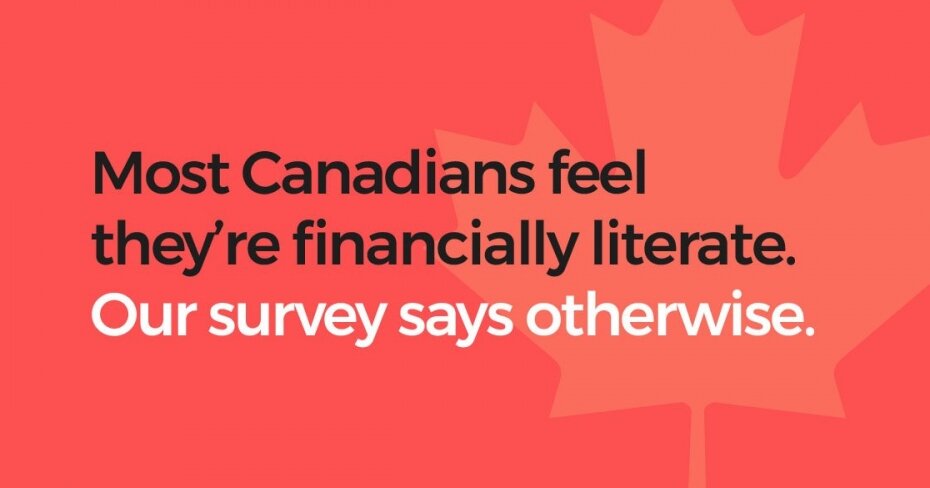When it comes to financial literacy, Canadians really overestimate their knowledge
By: John Shmuel on June 27, 2017
Alright Canada, listen up. You’ve got a financial literacy problem.
On Tuesday, LowestRates.ca released the results of a survey conducted in partnership with IPSOS, which found Canadians vastly overestimate their financial literacy. In the survey, we defined financial literacy as the ability to understand how money works in the world.
When we asked if Canadians think they are financially literate, 78% said yes— 14% rated their financial literacy as excellent, while 64% rated it as good.
But then came our 15 questions. They focused on some of the most common financial products Canadians buy and use — mortgages, car insurance, chequing accounts. The results of the survey show that Canadians are confused about how some of these work.
For instance, only 36% of Canadians understood that just the act of applying for a credit card can negatively affect your credit score. That’s concerning, given that international watchdogs have sounded the alarm on just how indebted Canadians are.
Also, only 34% of Canadians knew that some banks offer free chequing accounts. No wonder the big banks get away with charging for chequing — the overwhelming majority of Canadians don’t even know a free option exists.
Then came mortgages and home insurance. While most people could probably tell you what an interest rate is, the Ipsos survey revealed that Canadians are clearly confused when it comes to amortization versus a term. (The former is the length of the mortgage, the latter is a specific period — one, two or five years, for example — when variables such as your interest rate are in effect.)
Not great, Canada. Especially, as our CEO and co-founder Justin Thouin notes, a mortgage is often “the biggest financial decision most of us will make.”
In our survey, we found there’s a generational divide when it comes to financial literacy. While more than half of baby boomers passed our quiz, only 31% of millennials did. Worse yet, millennials were the most confident when it came to assessing their own financial literacy — 18% rated their knowledge as excellent, versus 14% of all Canadians.
The overconfidence is just as concerning as the lack of knowledge. Someone who admits they don’t know is likely to go out and try to learn. Someone who thinks they know it all already won’t bother.
Jonathan Chevreau, founder of the Financial Independence Hub, compares the overconfidence to drivers overestimating their driving skills.
‘Whether we’re talking about overconfidence when driving or about our financial and investing skills, both can be dangerous,” he says.
If you’re not armed with knowledge, financial institutions can take advantage of you. As mentioned, Canadians are carrying an extraordinary amount of debt right now — $167 for every $100 of disposable income we have. It’s more important than ever that we understand how the financial products that saddled us with that debt works.
Financial literacy isn’t just some buzzword. It’s a national imperative we have to get right. Or else, one of these days, all that debt we’ve piled on is going to come crashing down in an ugly way.


